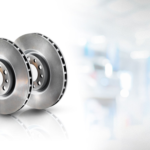In the fast-paced world of transportation and logistics, trucks are more than just vehicles they are the backbone of commerce. Every delivery, supply chain, and construction project depends on the smooth and reliable operation of heavy-duty vehicles. Keeping these machines in top condition isn’t optional; it’s essential.
That’s where the concept of comprehensive vehicle care and upkeep comes in. Behind every successful fleet lies a well-planned system of inspections, repairs, and preventive strategies designed to keep trucks running efficiently. This article explores the principles, practices, and future of professional truck maintenance highlighting how proper care keeps both vehicles and businesses moving forward.
The Importance of Consistent Maintenance
A truck represents a significant investment. Whether it’s used for long-haul transport, construction, or local deliveries, its performance directly affects business operations. Neglecting upkeep doesn’t just risk mechanical breakdowns it can also lead to safety issues, costly repairs, and even regulatory penalties.
Regular attention ensures that:
- Downtime is minimized. Preventive maintenance identifies issues before they become major problems.
- Safety is guaranteed. Inspections reduce the likelihood of on-road failures and accidents.
- Fuel efficiency improves. A well-maintained engine consumes less fuel and produces fewer emissions.
- Resale value increases. Vehicles with documented maintenance histories hold value longer.
In essence, proper care transforms vehicle ownership from a reactive cycle of repairs into a proactive system of reliability.
Understanding Preventive Maintenance
Preventive maintenance (PM) is the foundation of any successful fleet management strategy. It’s not about fixing trucks when they break it’s about preventing them from breaking in the first place.
A typical PM schedule includes:
- Fluid Checks and Changes – Regular replacement of oil, coolant, brake fluid, and transmission fluid ensures optimal performance.
- Filter Replacements – Air and fuel filters must be changed periodically to maintain engine health.
- Brake System Inspections – Proper braking performance is critical for safety and regulatory compliance.
- Tire Rotation and Balancing – Even wear extends tire life and improves fuel efficiency.
- Electrical System Testing – Batteries, alternators, and wiring must be inspected to avoid unexpected failures.
Modern fleet software now tracks these intervals automatically, alerting operators when service is due. This reduces human error and ensures nothing gets overlooked.
The Role of Professional Technicians
Skilled technicians are at the heart of every successful maintenance operation. Their training and expertise allow them to identify subtle issues before they become major problems. From diagnosing complex engine systems to repairing transmissions, they ensure every vehicle performs at its peak.
Today’s technicians work with advanced diagnostic tools and software that interface directly with onboard vehicle computers. These systems analyze data such as fuel usage, fault codes, and performance trends to pinpoint inefficiencies.
In a world where technology is rapidly advancing, continuing education is essential. Mechanics must constantly update their knowledge to keep pace with new emission systems, hybrid technologies, and electronic controls.
The Evolution of the Service Industry
The trucking industry has evolved dramatically over the past few decades and so has the way vehicles are maintained. Gone are the days when maintenance meant only oil changes and tire checks. Modern truck service in Golden Glades centers now offer comprehensive solutions that integrate technology, sustainability, and data analytics.
Advanced facilities use predictive maintenance models that rely on telematics and AI. By monitoring real-time vehicle data, they can predict when components are likely to fail and schedule maintenance proactively. This reduces downtime, extends the life of equipment, and cuts operational costs.
Furthermore, many service providers now operate 24/7, ensuring that fleet operations remain uninterrupted. Mobile units can even provide roadside repairs, diagnostics, and tire replacements — eliminating the need for costly towing or extended delays.
Key Areas of Truck Maintenance
To fully appreciate the depth of professional vehicle upkeep, it helps to understand the core systems that require attention:
1. Engine and Powertrain
The heart of any truck, the engine, demands careful attention. Regular oil changes, fuel system cleaning, and belt inspections ensure longevity and efficiency. Powertrain maintenance, including transmissions and differentials, keeps power delivery smooth and reliable.
2. Suspension and Steering
These systems directly affect handling, stability, and driver comfort. Routine inspections help identify worn components that could cause uneven tire wear or unsafe driving conditions.
3. Braking Systems
Brake pads, rotors, and air systems require frequent inspection and timely replacement. Failing to maintain brakes not only endangers drivers but also violates safety regulations.
4. Cooling Systems
Overheating can cause catastrophic engine damage. Proper coolant levels, radiator cleaning, and hose checks prevent failures under heavy loads or hot conditions.
5. Electrical and Lighting Systems
Modern trucks rely on complex electrical systems for everything from ignition to communication. Ensuring lights, wiring, and alternators function properly keeps drivers safe and compliant with regulations.
6. Tires and Wheels
Tires are the only point of contact between a truck and the road. Regular inspections, correct inflation, and alignment checks improve fuel efficiency and extend tire life.
Each of these areas plays a critical role in keeping a truck roadworthy. Ignoring even one can lead to downtime, safety risks, or expensive repairs.
Sustainability in Modern Maintenance
Environmental responsibility has become a major theme across industries, and vehicle upkeep is no exception. Today’s maintenance operations focus on reducing waste, recycling used oil and filters, and minimizing emissions.
Some facilities are adopting eco-friendly technologies such as:
- Energy-efficient equipment for diagnostics and repair.
- Water reclamation systems in wash bays.
- Recycling programs for metals, tires, and batteries.
- Hybrid and electric vehicle servicing for the next generation of trucks.
The shift toward green practices doesn’t just benefit the planet it also attracts environmentally conscious clients and improves brand reputation.
Technology’s Role in Efficiency and Reliability
Technology has transformed how fleet operators manage and maintain vehicles. Advanced telematics systems collect real-time data on performance, location, and maintenance needs. Managers can now monitor everything from tire pressure to engine temperature remotely.
Artificial intelligence and machine learning tools use this data to predict potential breakdowns, optimize routes, and schedule maintenance efficiently. Cloud-based service logs ensure that every inspection, repair, and part replacement is recorded digitally making compliance and recordkeeping easier than ever.
These innovations make modern truck service operations faster, smarter, and more cost-effective. Instead of relying on guesswork, decisions are guided by data, precision, and measurable results.
The Cost of Neglect
Ignoring maintenance might save money in the short term, but it always leads to greater expenses down the road. Some of the most common consequences include:
- Engine Failure: Small issues, like oil leaks, can escalate into complete engine replacements.
- Brake Malfunctions: Worn pads can damage rotors, leading to costly overhauls.
- Reduced Fuel Efficiency: Dirty filters and poor alignment increase fuel consumption.
- Unexpected Downtime: A broken truck means lost revenue and missed deadlines.
Preventive care is always less expensive than emergency repairs both financially and operationally.
Safety and Compliance Standards
The trucking industry operates under strict safety regulations designed to protect both drivers and the public. Regular inspections are not just best practices, they are legal requirements.
Government agencies often mandate periodic inspections covering brakes, tires, lights, and emissions. Keeping accurate maintenance records is essential for passing audits and avoiding fines.
Professional service providers stay updated on these standards, ensuring every vehicle meets or exceeds regulatory expectations. Compliance not only avoids penalties but also demonstrates commitment to professionalism and safety.
Building a Maintenance Culture
For companies managing multiple trucks, creating a culture of maintenance is just as important as the service itself. Drivers should be encouraged to perform daily inspections and report any unusual sounds, leaks, or performance issues.
A successful culture includes:
- Training programs that teach drivers basic maintenance awareness.
- Reward systems for consistent vehicle care.
- Transparent communication between operators and technicians.
- Data tracking systems that monitor service history and performance trends.
When everyone participates, maintenance becomes a shared responsibility that strengthens the entire operation.
The Future of Truck Maintenance
The future of vehicle upkeep is moving toward automation and sustainability. Electric trucks, hydrogen fuel systems, and advanced sensors are redefining how service will be performed.
Self-diagnostic systems may soon allow trucks to schedule their own repairs. Augmented reality could assist technicians by projecting digital repair guides directly onto components. As automation increases, the focus will shift from mechanical work to data-driven analysis and software updates.
Despite all these advancements, the human element will remain vital. Skilled professionals will continue to interpret data, perform precision repairs, and provide personalized service that machines can’t replicate.
In this evolving landscape, the modern truck service will stand as a fusion of technology, craftsmanship, and innovation, a partnership between man and machine built on trust, reliability, and performance.
Final Thoughts
Trucks are the lifeblood of global commerce, connecting industries, communities, and consumers. Their reliability depends on more than manufacturing quality it hinges on consistent, professional care.
A comprehensive maintenance program ensures safety, longevity, and efficiency. It safeguards investments and strengthens the foundation upon which the entire logistics industry operates.
As technology continues to advance, the principles remain the same: care, attention, and responsibility. With these values at its core, the world of professional truck maintenance will continue to drive progress mile after mile, year after year.







